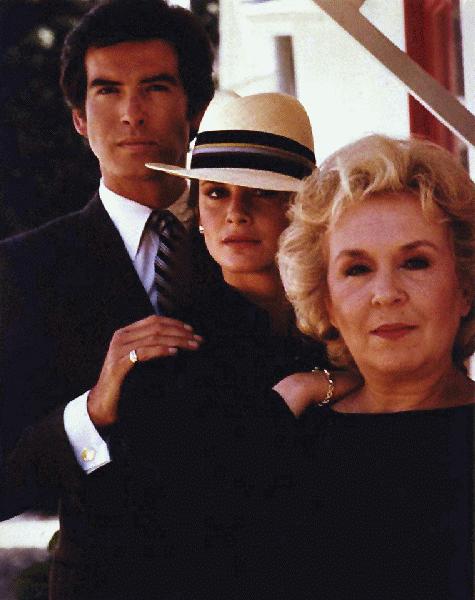more chaperoning? (And restriction of mobility?) The other night I was watching a movie which reminded me of prom culture, cars, and the lack of parental oversight. What was I reading or watching... someone mentioned how stupid it was for dad to buy his son a mobile motel room. Ah I remember now, it was this Crunchy Con thread:
Red hot Chile peppers.
From elizabeth:
My dad, an atheistic, politically liberal and totally Victorian prude, continually points out that American parents went off their rails by handing their teens "portable bedrooms" in the 1950s. Adults took leave of their senses when they stopped chaperoning adolescents. Close supervision of young people, in earlier eras, was an expression of collective wisdom. Adults understood that sexual urges were intense and that young people were not the best at projecting consequences. They did not need to humiliate youngsters for being "immature," they KNEW that kids are by definition immature, and were willing to provide the necessary supervision.
Making middle and high schools single-sex rather than co-ed would be a part of the solution, but it could not be relied upon as a complete solution, so long as there were opportunities outside school hours for teenagers to mix freely and without supervision. (Ah, the 'good old days' of the '50s--the rise of teen culture and a false sense of independence and autonomy, suburbia, and the automobile.)
It is necessary to refrain from being an overeager sentinel when children are children and exploring the outside world, learning how to socialize, and so on. The world isn't a "safe" place, and they need to be able to cope with it on their own (until they come back to you so you can kiss their boo-boos). But when they reach puberty, they do need rules, boundaries, and supervision--we are dealing with different acts (and virtues) now. Hindering the development of courage or of a proper measure of independence is no longer the issue.
Do we make teenagers "prisoners" at home? It seems to me that letting teenagers go on 'group dates' may a bad idea, if there is no adult supervision. Even if they are not lying about what they are up to and are really participating in a group activity, and we have given them direction as to how they should handle themselves and an understanding of traditional sexual morality, does allowing them to go out with their peers reinforce a false sense of autonomy and independence? (Assuming that they are hanging out with the right crowd--how many parents fail to even find out what their children's friends are like, and what families they come from?)
While sexual mores may have collapsed (any awareness of fornication as sin or wrong has been lost by many), we must look at other causes that have worked in the favor of licentiousness. With the loss of communal life and festivities we have lost ways in which
eros can be channeled and sublimated. Instead we leave our teenagers alone to figure out things for themselves, avoiding criticism of poor decisions or giving tacit approval to their choices. How many parents can be bothered to have wholesome activities for their adolescent children and their friends? Not having the means to throw a ball isn't a problem--parents don't need to have a fancy ball. But they may not even possess the social network that would make a ball out of a Jane Austen novel possible. What we have lost with the fragmentation of community!
So not permitting them to go on group dates may be going to far. But we can withhold giving them cars, can't we? If they have no car to transport themselves (or to use as a portable bedroom), then it is less likely they will get in trouble. But parents would have to agree upon this--all it takes is one car in the group and the financial means to secure temporary 'lodging' for there to be an opportunity to sneak off for some 'fun' (or for a guy to show how much he 'loves' a gal).
Supervision and restriction of mobility and contact are better than the status quo and the pathetic solution of "more sex ed, and at every level," And it is more humane than requiring certain people to wear a scarlet F for fornication. Ha. We can try to reduce teenage pregnancy by reducing the opportunity for teenagers to engage in those activities that would lead to a girl getting pregnant. And fathers need to have a renewed sense of their roles with respect to their daughters--at least there is still some sense of this in some country songs. (And let us not forget how much of teenage pregnancy is due to a failure of fathers to be fathers for their daughters, causing them to look for affection from other males.)
Many parents have completely given up their responsibilities, surrendering their children to a poisonous culture. Some never even had much practical wisdom or guidance to offer to begin with. If they don't even know what is going on under the roof of their houses, at least when it involves other people, there's a big problem.

(Hence part of the controversy surrounding
Sarah Palin's nomination, and the scrutiny of her family life. Where were the parents, and were they neglectful? And if there was a dereliction of parental responsibility, is she really qualified for national office?)
I'll grant it is unlikely that anything is going to change nationally--people are content with the status quo. Besides, these remedies do not go far enough, since they only delay the opportunity for premarital sex, which teenagers going to college after graduating from high school may not have any problem finding. Parents should therefore also consider carefully about what their options are once it is time "send their kids off to college." Gone are the days when college dormitories were single-sex and would have someone supervising dorm life, and visitation was restricted. And such arrangements do not prevent people from going to bars, nightclubs, or parties, or "spending the night" over at someone's house or apartment. (Unless the dormitory has a check-in list; but these days not even many seminaries have that.)
Perhaps if we equate becoming an adult with becoming a citizen, then this is one more reason for raising the age of citizenship.
Otherwise, if we are fostering within them an 'autonomous' mindset, then shouldn't we be preparing them for adult responsibility at an earlier age, and equipping them with the skills they would need in order to get a suitable job to support a family? But there is no sign that our rulers are remotely interested in reforming the political economy to make this possible, and to give an incentive for schools to reform themselves. And instead of promoting 'adult responsibility' we infantilize, which facilitates promiscuity.
As I've written before, parents have much to answer for--they should not think that marriage is simply a way to relieve concupiscence (even if that is one of its legitimate purposes). With children comes a heavy responsibility to give them the proper moral education, and this cannot be left to the 'village,' 'professionals,' or the state.
But it does seem like we are in a clusterf-; a solution promoting virtue, both in children and their parents, is very unlikely. Instead we will get more agitation from the poorly-informed and 'well-meaning,' as well as the children of Satan (are those two categories really exclusive? see Christ's rebuke of Peter), for greater access to contraception and abortion.
Google Books:
From Front Porch to Back Seat: Courtship in Twentieth-Century America. (
John Hopkins University Press)



















































